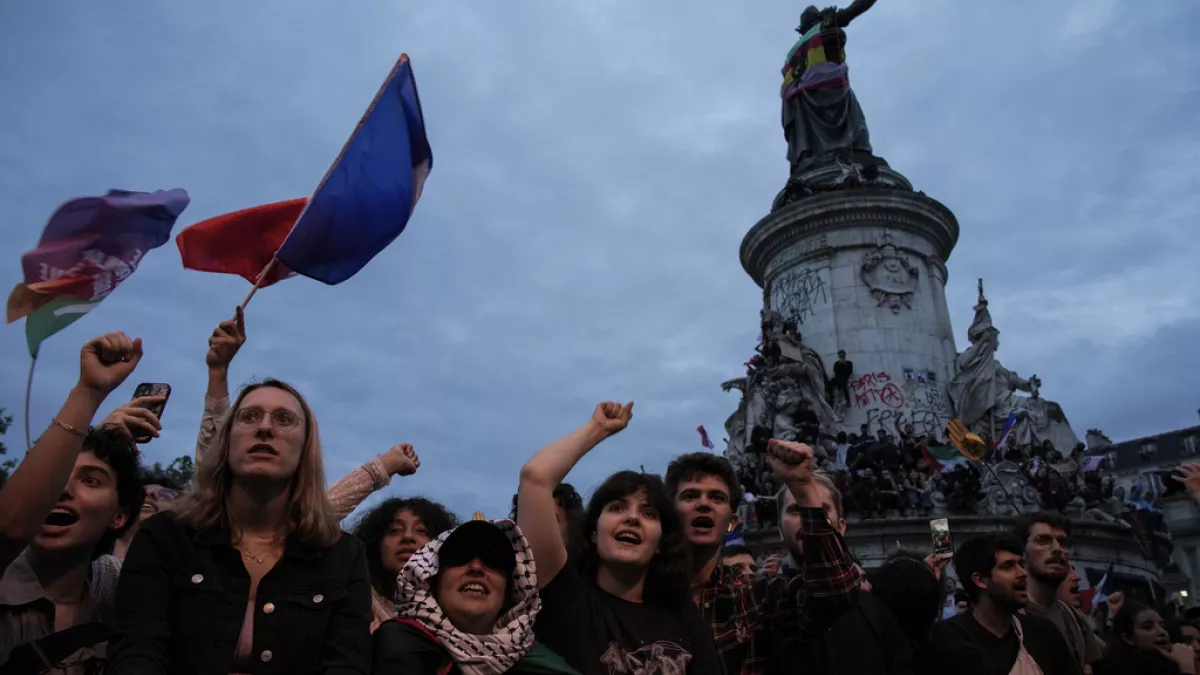Inside about a week, French politics has taken a crazy turn, swinging from extreme right to extreme left. The first round of the Parliamentary election saw far-right Marine Le Pen’s National Rally (Rassemblement National or RN in French) clearly ahead of others. Following this the several leftist parties including the Socialists, Communists, Greens and Jean-Luc Mélenchon’s France Unbowed—under the umbrella of the New Popular Front (Nouveau Front Populaire or NFP in French)—decided to fight the election tactically to keep Le Pen’s party away from power. On 200 seats, the different Left factions withdrew candidates to direct the vote to one NFP candidate. The election eventually threw up a hung Parliament, with the extreme left NFP coming first. President Emmanuel Macron’s coalition of centrist parties, Ensemble, comprising his own party Renaissance and some others, came second, while Le Pen’s RN came third. NFP won 182 seats, Macron’s coalition 168, while RN-plus-allies won 143. NFP fell far short of the 289 seats required for a majority in the National Assembly.
Interestingly, in terms of vote percentage, Le Pen’s RN is ahead of the others by getting 37.1% votes. While the NFP got 26.3% and Macron’s coalition 24.7%. So in France’s peculiar election system, Marine Le Pen’s party, despite outperforming its rivals by over 10 percentage points, came third in the number of seats won, the reason why it is calling the election result a “deferred victory”.
Meanwhile, Emmanuel Macron will continue to remain President as in France, Presidents are elected directly in a separate election. Macron, who was re-elected in 2022—he was first elected as President in 2017—has another three years to go. Macron had called the snap election after Le Pen’s party performed well in the EU Parliamentary elections. He was trying to pre-empt a possible victory for Le Pen and ensure that his Renaissance returned to power. While he managed to stop Le Pen, reports are he is worried that the loony left is now inside breathing distance of power. The Left are saying that they hope that Macron will do the right thing by appointing someone from their coalition as Prime Minister. There is speculation that Left’s and Macron’s alliances may have to join hands to form government, even though Macron’s bloc is averse to Jean-Luc Mélenchon in particular.
At the centre of the Left coalition is the controversial figure of Jean-Luc Mélenchon of France Unbowed. He is an admirer of leaders like Venezuela’s late President Hugo Chavez, who ran his country’s economy to the ground; believes that wealth has not been distributed properly in France; has been throwing temper tantrums with his coalition partners; and is now being accused by his critics of being pro-Hamas and anti-Jewish. He wants to be Prime Minister and is insisting on the implementation of all the points in the NFP manifesto, which promises to increase spending, increase wages and decrease the retirement age–things, if implemented, will put France in collision course with the rest of EU and businesses in general. Analysts say that Mélenchon’s agenda will require France to spend an additional 179 billion euro or $194 billion. There is some talk about a broader coalition government with Macron’s alliance, but any such formation is likely to be unwieldy and full of contradictions. But French law does not allow President Macron to call for another election in the next 12 months, so France can expect complete chaos and policy paralysis for at least a year.
Amid this, there is celebration in the so-called liberal sections of Europe that far-right Marine Le Pen could not come to power. But it will be a mistake to write off the surge in votes that Le Pen’s party has witnessed. The fact that she cornered over 37% of the votes, and was defeated only because of better tactics, means that her anti-immigration agenda has found a resonance among voters. Among other things, her tough stance on the headscarf has made her a reviled figure among the Muslims of France, a country that already has a problem with displaying religious symbols in public and looks at the headscarf from that angle. A large segment of the French public already considers the minorities to be anti-modern. Also, France has witnessed horrific terrorist attacks by radicals, including the Charlie Hebdo attack and the Bataclan concert hall attack that killed several civilians.
Much of France’s response to immigrants from the Muslim world has been shaped by this experience. In fact, it’s not just Le Pen, even Macron has been accused of being Islamophobic because he defended the French right to freedom of expression post the beheading of a teacher for discussing in his classroom some drawings that were considered to be anti-Islam by that demography. All this has to be seen in the context of the fact that the Left victory rallies after the election results were declared were dominated by the Palestinian flag. In such a scenario, a clash of ideas seems like a distinct possibility. Also, by the time the next elections are held, possibly just after 12 months, the verdict may not seem as confusing as it seems in 2024. Chances are that the Left surge will be temporary.






